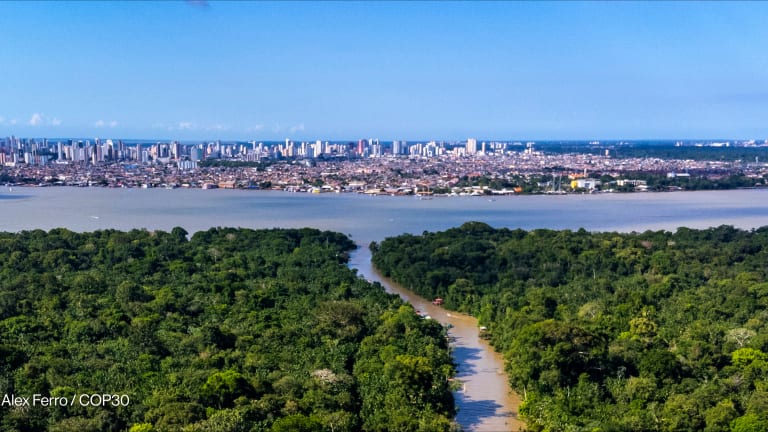
USAID Administrator Samantha Power has called on international donors to step up their climate adaptation financing, as she confirmed that the United States would spend $3 billion a year on the sometimes neglected area.
The U.S. Congress passed a $1.2 trillion infrastructure deal on Nov. 5, boosting the President’s Emergency Plan for Adaptation and Resilience, or PREPARE, announced by President Joe Biden as COP 26 opened last week.
“With the support of our allies in Congress, the U.S. will provide dedicated adaptation financing — $3 billion annually by 2024 as part of the new PREPARE initiative,” Power told an audience at an event on the sidelines of COP 26.
“Unless our [Indigenous] knowledge is visible, [and] our local solutions are mainstreamed, then we will be left behind, but with PREPARE we are looking forward.”
— Joan Carling, Indigenous Filipino human rights activist and environmentalist“We need other donor governments to meet their commitments to adaptation in the way that many have prioritized mitigation,” she added.
Climate finance — where it has been available — has historically been skewed towards mitigating carbon emissions, such as through investments in renewable energy. Adaptation programs, such as early weather warning systems or climate-resilient infrastructure, have received as little as 5% of available climate finance, according to some estimates, including those cited by former United Nations Secretary-General Ban Ki-moon.
PREPARE is a multifaceted program being run by five U.S. government bodies, including U.S. Agency for International Development, the State Department, and the International Development Finance Corporation.
The initiative was welcomed by civil society figures, with Mercy Corps CEO Tjada D'Oyen McKenna saying she was “thrilled, really, that the U.S. government has chosen to raise the flag for adaptation … we are thrilled with PREPARE.”
Localization and partnership at USAID: What's next?
For insights into what comes next, Devex Pro subscribers can join us for an online event on Nov. 19, 10 a.m. ET (4 p.m. CET) with USAID's localization and industry liaison leads. Save your spot.
In a nod to Power’s new localization focused strategy for USAID, Indigenous Filipino human rights activist and environmentalist Joan Carling welcomed PREPARE, saying there were parts of it which were “very important to Indigenous people,” such as a participatory decision-making process and how to help effective local solutions to climate challenges go mainstream.
“Unless our knowledge is visible, [and] our local solutions are mainstreamed, then we will be left behind, but with PREPARE we are looking forward,” said Carling. She added that Indigenous people “are not just vulnerable, we have the solutions, we have the knowledge, and we are a force for adaptation.”
Notably absent from the discussion was any mention of loss and damage — an issue which is stymieing negotiations as climate-vulnerable nations call for dedicated finance and other tools for dealing with climate shocks that have happened or which cannot be adapted for.








